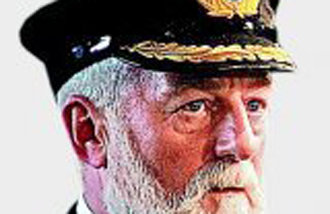Military and Poktanju
Soldiers drink Potkanju (boilermaker). Lets have one.
A day before the first inter-Korean defense ministerial meeting on Jeju Island at the end of September 2000, the South Korean delegation led by Defense Minister Cho Seong-tae proposed a Poktanju dual to the North Korean delegation led by North Korean military chief Kim Il Chol. It was immediately after they had a tug of war over 30 glasses of Heobokju (a local alcohol of Jeju) per person. Since the North Korean delegation said, as if they were caring about the meeting next day, We dont like Poktanju, the Poktanju dual did not happen.
Poktanju, which is a mix of beer and liquor or soju, has been a symbol of the military drinking culture like the episode above. In Korean modern history, the military and the mixed alcohol have been closely tied together. It is believed that the military introduced Poktanju to Korean society first. Portal websites also say soldiers who studied in the U.S. in the 1960s and 70s first introduced it to Korea.
It is said that those who entered politics from the military in the early 1980s spread the new culture to the political, legal, and media community, spreading further to every class of society. Some say that the new military regime back then took advantage of Poktanju for partnership with civilians to grab and maintain power.
Until a few years ago, Poktanju has been a mainstream culture in the military. Soldiers drank lots of Poktanju in the name of loyalty alcohol or unity alcohol at drinking events hosted by the military leadership and commanding officers.
At the military where the order was its core part, Poktanju was a wonder drug because it conformed unity and was an order from the top to bottom which one cannot refuse. Moreover, it prospered in the military because of the somewhat aggressive but generous military drinking culture A good drinker is a courageous soldier. If not, a coward. Even there was a joke that Poktanju was widely spread in the military because liquors supplied to the military were tax-free, cheaper than other places, and none of them were fake.
Poktanju was also a symbol of power. The profiles of those who became a high-ranking position or a head of a power organization or such candidates used to include how much they can drink it. A person who can drink dozens of glasses of alcohol was considered a broad-minded big man. Some said Poktanju was fair in that all drank the same and made the drinking occasion end early.
It was also the military that highlighted the negative impact of Poktanju. In March 1986, parliamentary defense committee members and military high-level generals had a fist fight after drinking Poktanju. The alcohol that caused the unprecedented fight between golden badges (lawmakers) and stars (generals) became the word of the year.
Poktanju shrank after the civilian government was launched. Due to a large national campaign to eradicate Poktanju, the legacy of the military culture, the military also tried to remove it and promoted a healthy drinking culture.
However, the alcoholic beverage has evolved and survived. Sopokju, a mix of soju and beer, seems to be more popular these days. A survey by the Korean Food and Drug Administration last year found that those in their 20s enjoy Poktanju, mixed of beer and liquor or high caffeine drinks, more than those in their 30s, 40s, and 50s.
Heavy drinking often leads to an accident. A rape case in the Korea Military Academy last month started from drinking event involving Poktanju. Some criticize that the case happened because the military academy eased the regulations on drinking to reflect the social trend. To drink a small dose of alcohol, cadets needed approval of the principal and the cadet representative from 2001, which was later changed in 2003 into approval of discipline officers, academic advisory professors, and parents.
According to the military`s investigation result on the rape case, professors did not realize the seriousness of cadets` excessive drinking in the academy and failed to make surveillance into cadets, such as taking a protection measure for them. The Army proclaimed that it would strengthen the drinking rules on cadets. Whether the military could smoothly break with Poktanju remains to be seen.







